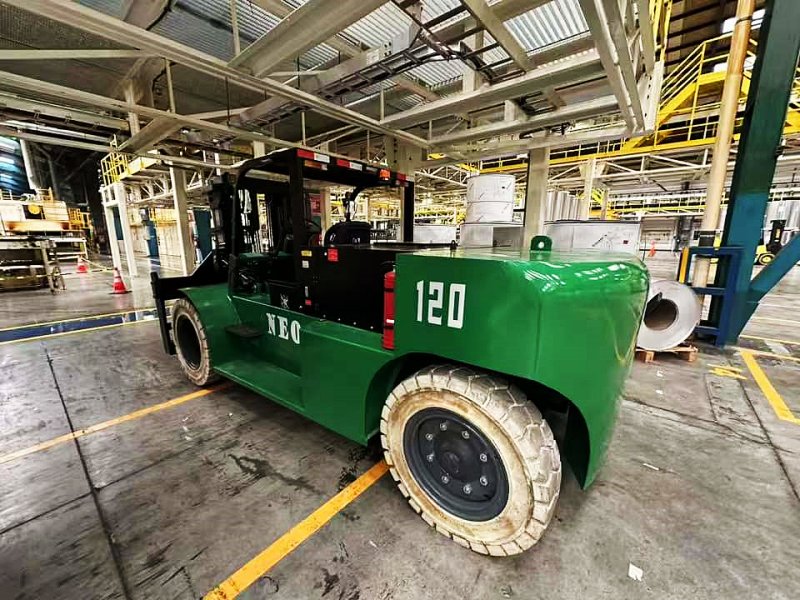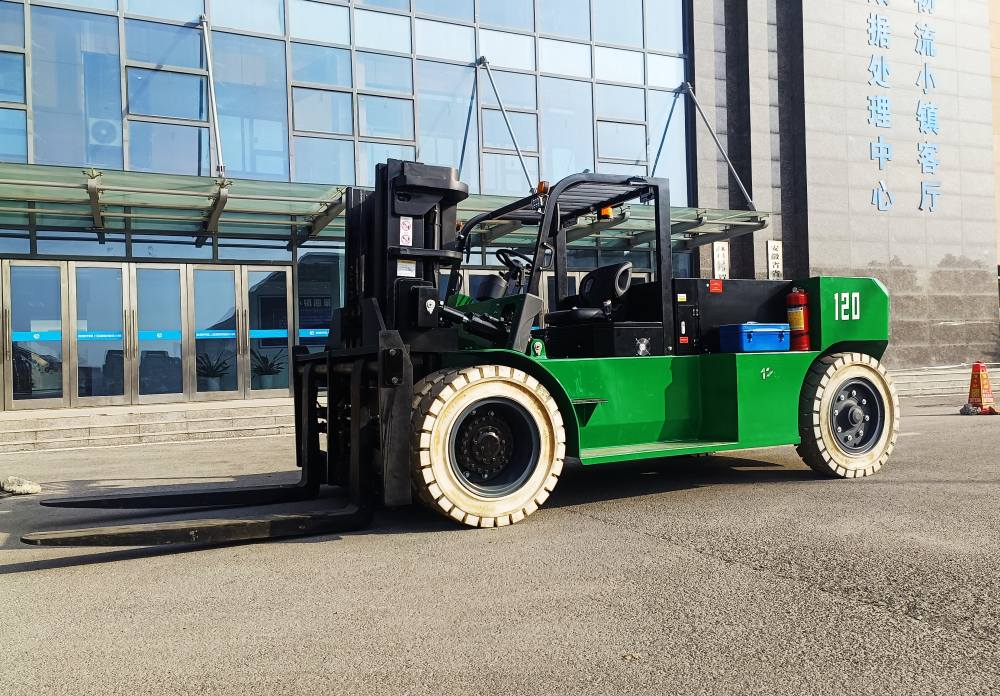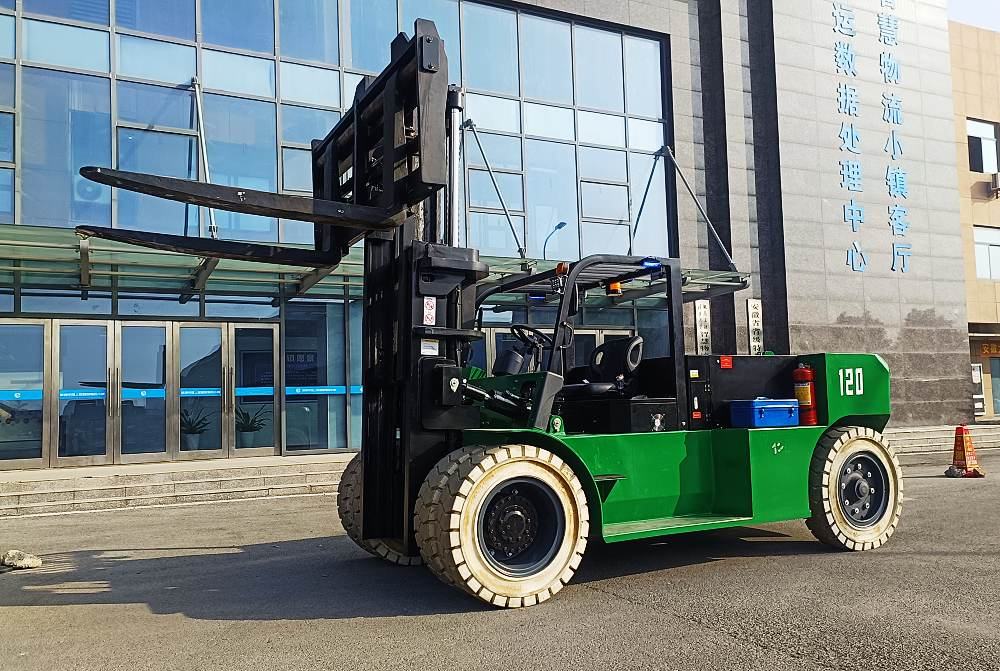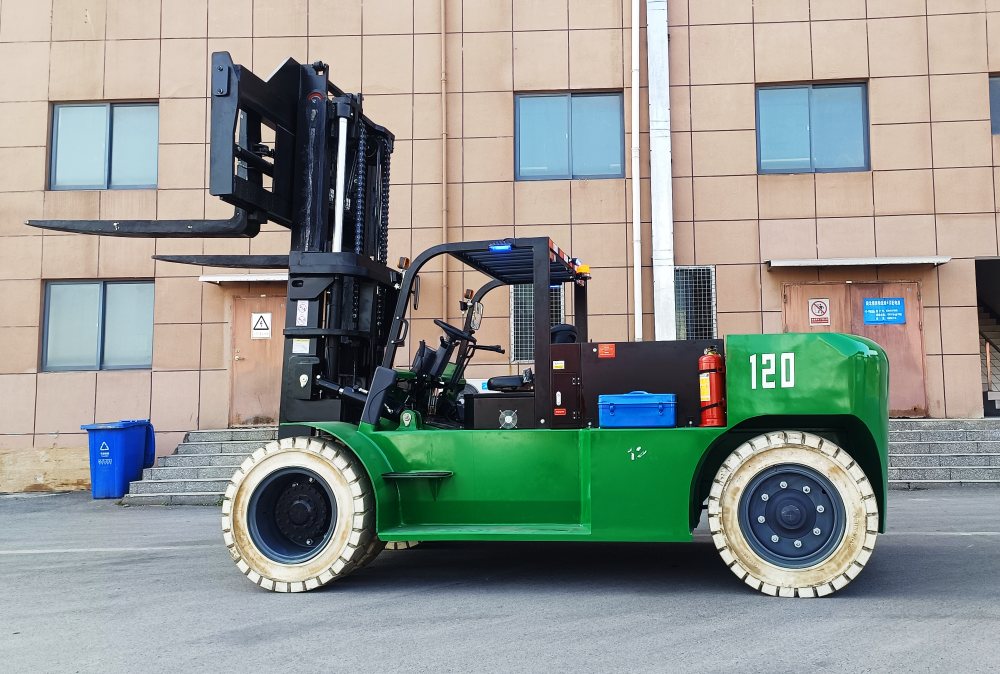What Are You Looking For?
The global shift toward sustainability and stricter emissions regulations is transforming the material handling industry. While electric forklifts have already dominated the light- to medium-duty segments (1-5 tons), the adoption of heavy-duty electric forklifts (5+ tons) has been slower, with internal combustion engines heavy-duty forklift still leading in high-capacity applications.
But as battery technology advances and decarbonization policies accelerate, a critical question arises: Will heavy-duty electric forklifts become the industry standard, or will diesel/LPG models retain their dominance?

1. The Case for Heavy-Duty Electric Forklifts: Key Advantages
(1) Sustainability & Regulatory Compliance
Zero emissions – Unlike diesel forklifts, electric models produce no CO2, NOx, or particulate matter, making them ideal for indoor warehouses, food processing, and eco-conscious industries.
Stricter global regulations – The EU’s Stage V emissions standards, China’s Non-Road IV regulations, and corporate ESG commitments are pushing companies toward cleaner alternatives.
(2) Lower Total Cost of Ownership (TCO)
Energy efficiency – Electricity costs are 30-50% lower than diesel fuel, especially with fast-charging lithium-ion batteries.
Reduced maintenance – No engine oil, filters, or exhaust system repairs mean 40% lower maintenance costs.
Longer battery life – Modern Li-ion batteries last 8-10 years, with rapid charging in 1-2 hours.
(3) Expanding Applications: Beyond Indoor Warehouses
Outdoor-ready models – New heavy-duty electric forklifts feature IP54-rated protection(dust/water resistance) and high-torque motors for rough terrain.
Ports & logistics hubs – Companies like Hyster and Toyota now offer electric container handlers as diesel alternatives.

2. Current Challenges: Why Adoption is Still Limited
(1) Higher Upfront Costs
A 5-ton electric forklift can cost 30-50% more than a diesel equivalent, deterring budget-conscious buyers despite long-term savings.
(2) Battery Limitations in High-Intensity Operations
Continuous heavy loads may require mid-shift charging, while diesel forklifts refuel in minutes.
Cold weather performance – Lithium batteries lose efficiency below -20°C (-4°F), whereas diesel engines remain reliable.
(3) Charging Infrastructure Gaps
Remote construction sites, mines, and ports often lack sufficient charging stations.

3. The Future Outlook: Will Electric Dominate Heavy-Duty?
(1) Technology Breakthroughs Driving Change
Solid-state batteries – Expected to double energy density, enabling longer runtime and faster charging.
Hydrogen fuel cells – Companies like Hyundai and Plug Power are testing hydrogen-powered forklifts for diesel-like refueling speed.
AI-powered energy management – Smart systems optimize battery usage, extending lifespan.
(2) Policy & Market Forces Accelerating Adoption
EU’s 2035 ban on fossil fuel-powered non-road machinery will push electrification.
Corporate sustainability pledges – Amazon, Walmart, and IKEA are transitioning to 100% electric fleets, influencing suppliers.
(3) A Hybrid Future: Electric & IC Forklifts Will Coexist
Electric will dominate:
Port operations (electric RTGs and reach stackers).
Cold storage & urban logistics (zero-emission compliance).
Diesel/LPG will remain:
Mining, steel mills, and extreme environments (where robustness outweighs emissions concerns).

Conclusion: Heavy-Duty Electric Forklifts Are the Future—But Not Overnight
While heavy-duty electric forklifts are gaining traction, widespread adoption will take 5-10 years due to cost, infrastructure, and technology barriers. However, with advancing batteries, hydrogen alternatives, and regulatory pressure, they are poised to become the preferred choice for ports, logistics, and manufacturing.
Businesses should evaluate TCO benefits, pilot electric models, and monitor hydrogen developments to stay competitive in the evolving market.
What’s your take? Will heavy-duty electric forklifts replace diesel? Share your thoughts in the comments!